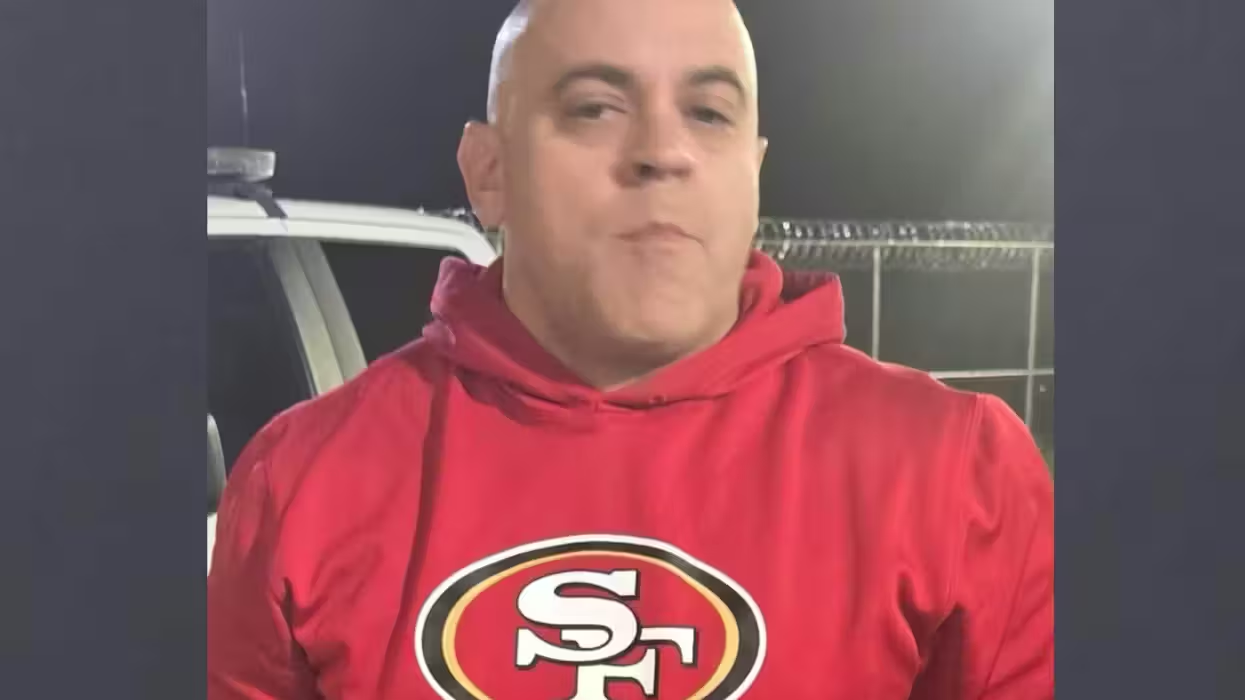
© 2025 Blaze Media LLC. All rights reserved.
Did the Famed Neurosurgeon Who Claims He Saw God and Visited Heaven Lie? Article Exposes Alleged Inconsistencies
July 03, 2013
- Esquire writer accuses famed doctor and author Dr. Eben Alexander of potentially embellishing story and leaving out key details
- Investigation shows alleged disparities in Alexander's account of the afterlife as told in his book "Proof of Heaven" and by others familiar with the story
- Key personal details about Alexander's background were withheld from the public, Esquire alleges
- ER doctor who treated the neurosurgeon gives contradictory account of events that unfolded at the hospital during Alexander's near-death experience
--
Over the past year, Dr. Eben Alexander, a neurosurgeon who never really believed in near-death experiences until he fell into a coma and allegedly experienced the afterlife, has captured media attention with his fascinating story.
But just months after he rose to prominence with his fascinating tale, Esquire Magazine is releasing a potential take-down article that calls into question some of Alexander's claims. In speaking with a doctor who treated the neurosurgeon during his hospital experience, it seems the coma story at the center of his best-selling book and media tour -- at least according to the article -- may not be as air-tight as some previously assumed.
 This August 16, 2012 photo provided by Dr. Eben Alexander, shows Dr. Eben Alexander posing in Charlottesville, Va. Alexander's brain was attacked by severe bacterial meningitis what he says happened during seven days of coma makes up his best-selling book, "Proof of Heaven: A Neurosurgeon's Journey into the Afterlife." Credit: AP
This August 16, 2012 photo provided by Dr. Eben Alexander, shows Dr. Eben Alexander posing in Charlottesville, Va. Alexander's brain was attacked by severe bacterial meningitis what he says happened during seven days of coma makes up his best-selling book, "Proof of Heaven: A Neurosurgeon's Journey into the Afterlife." Credit: AP
Published in the August 2013 issue which comes out July 9 and is available online, the investigation, entitled "The Prophet," is written by Luke Dittrich, a contributing editor at Esquire. Far from a praise-worthy piece, the narrative paints Alexander out to be potentially dishonest in allegedly embellishing his story and leaving out key personal and professional details.
At its core, the text, which relies on more than two dozen interviews with close current and former associates, calls into question details presented in the neurosurgeon's book, "Proof of Heaven."
Inconsistencies in Alexander's Afterlife Story
First, there's the claim that he was in a coma and visited the afterlife. This, Dittrich alleges, has some factual inconsistencies worth highlighting. In an interview with Esquire, the emergency room doctor who treated Alexander shared some details that seemingly contradict the story as its been told thus far.
Rather than a natural coma, Dr. Laura Potter at Lynchburg General Hospital claims that Alexander was put into a "chemically-induced coma."
But when he came off of the drugs, he was agitated and in a state that she described as "conscious but delirious." Thus, the claim that his brain was effectively shut off and non-operational, pending Potter's account is accurate, is not necessarily rooted in truth. Here are her views on the matter:
"We couldn't work with Eben at all, we couldn't get vital signs, he just was not able to comply. So I had to make the decision to just place him in a chemically induced coma. Really for his own safety, until we could treat him. And so I did.... I put him to sleep, if you will, and put him on life support." [...]"And of course he was still in an induced coma," she says. "On ventilator support. They tried to let him wake up and see what he would do, but he was in exactly the same agitated state. Even if they tried to ease up, a little bit even, on the sedation. In fact, for days, every time they would try to wean his sedation—just thrashing, trying to scream, and grabbing at his tube."
If this all checks out, critics might claim that the neurosurgeon was simply delirious and manufacturing thoughts of what he assumed could be the afterlife. But that's not the end of the debate.
There's another detail taken directly from the book and fact-checked that will likely spark additional controversy. Alexander writes that he was groaning and wailing in the ER emergency room for two hours before he was sent to the ICU. After outwardly showcasing the pain he was feeling, he claims he went silent -- that is, until he appealed to the Lord.
"Then, out of nowhere, I shouted three words. They were crystal clear, and heard by all the doctors and nurses present, as well as by Holley, who stood a few paces away, just on the other side of the curtain," he wrote, noting that he said "God, help me" aloud.
Now, while the neurosurgeon claims that this unfolded, Potter doesn't remember hearing these words. While it's possible she wasn't in the room at the time, there's another problematic detail: The emergency room doctor remembers "intubating" Alexander one hour before he headed to the ICU. With a tube placed down his throat and vocal folds, she doesn't believe he would have had the ability to speak at all.
Was Information About the Neurosurgeon's Credibility Withheld?
Professional issues that have gone relatively under the radar until now are also mentioned in the Esquire piece. According to Dittrich, Alexander's career has been colored by numerous lawsuits over the past decade. It is also alleged that the doctor attempted to hide surgery errors by altering patient records.
Over the course of the past 12 years, he has apparently worked at three separate hospitals, but his employment has ended without explanation at each location. Here's a sample surrounding his departure from one of the hospitals he once worked at:
In August 2003, UMass Memorial suspended Alexander's surgical privileges "on the basis or allegation of improper performance of surgery." (The specifics of the case leading to the suspension are confidential, though Alexander claims it resulted from "a very complex repeat operation I did around the brain stem of a patient in which the patient had more difficulty recovering after the operation I would say than I anticipated and than I led them to believe.") His suspension technically ended in November of that same year, but he never went back to work at UMass Memorial. He resigned. The following year he did a little freelance consulting for the Gerson Lehrman Group, a company that matches corporations with experts in various fields, and also filed an unsuccessful lawsuit against the Brigham and Women's Hospital, claiming it improperly withheld more than $400,000 of his retirement and deferred-compensation plans. He had been more or less out of work for fifteen months when, in March 2005, he received a letter from the Massachusetts Board of Registration in Medicine asking him to respond to a complaint form they'd received from a former patient who was upset that Alexander had stopped responding to phone calls. Alexander wrote a letter back, explaining that the complaint was invalid because he was no longer practicing and that, furthermore, he would soon be leaving the state altogether.
Considering that much of the doctor's afterlife story has been based on his standing as a renowned neurosurgeon, some might question if past legal battles surrounding his surgeries should have been included in the book.
This in mind, in describing the neurosurgeon, Dittrich paints a fascinating and potentially-contradictory dichotomy -- one of a religious icon of sorts versus a man who has desperately attempted to escape his past:
From one point of view, the point of view that Fox & Friends and Newsweek and Oprah and Dr. Oz and Larry King and all of his other gentle interrogators have helped perpetuate, Dr. Eben Alexander is a living miracle, literally heaven sent, a man capable of finally bridging the chasm between the world of spirituality and the world of science. From this point of view, he is, let's not mince words, a prophet, because after all, what else do you call a man who comes bearing fresh revelations from God? This point of view has been massively profitable for Dr. Eben Alexander, has spawned not just a book sold in thirty-five countries around the globe but a whole cascade of ancillary products, including a forthcoming major motion picture from Universal.But there is another point of view. And from this point of view, Dr. Eben Alexander looks less like a messenger from heaven and more like a true son of America, a country where men have always found ways to escape the rubble of their old lives through audacious acts of reinvention.
Watch Alexander speak about seeing God in an interview with Oprah, below:
And these are only a few of the elements mentioned in the wide-ranging investigative piece.
Alexander, who has spoken extensively about his illness -- one that landed him in a coma and purportedly gave him a window into the afterlife -- has captivated the hearts and minds of many Americans. And based on his story, the appeal is understanding.
A description of his book explains: "While his body lay in coma, Alexander journeyed beyond this world and encountered an angelic being who guided him into the deepest realms of super-physical existence. There he met, and spoke with, the Divine source of the universe itself."
It's unclear whether these new-found allegations definitively debunk his story, but they certainly do spark a discussion. TheBlaze reached out to Alexander for comment and has not yet received a response. You can read the Esquire article in its entirety to learn more about the allegations being waged against the neurosurgeon.
--
Other Must-Read Stories:
- Facebook Yanks Conservative Comedian's Video About Zimmerman Trial Witness' 'Creepy A** Cracker' and 'Retarded' Testimony, Citing 'Hate Speech'
- ‘B.S.!’: Sparks Fly as Bill O’Reilly and Juan Williams Clash Over Gay Marriage and States’ Rights
- Is Casual Sex Leading to Psychological Distress, Anxiety and Depression in Young People? Study Yields Shocking Results
- Report: Public University Unfairly Raising Black Students’ Grades to Boost School’s Standing
- Is Yoga Religious? Judge Rules Public School Classes Don’t Violate the Separation of Church and State
Want to leave a tip?
We answer to you. Help keep our content free of advertisers and big tech censorship by leaving a tip today.
Want to join the conversation?
Already a subscriber?
Billy Hallowell is a digital TV host and interviewer for Faithwire and CBN News and the co-host of CBN’s "Quick Start Podcast."
Billy Hallowell
Billy Hallowell is a digital TV host and interviewer for Faithwire and CBN News and the co-host of CBN’s "Quick Start Podcast."
more stories
Sign up for the Blaze newsletter
By signing up, you agree to our Privacy Policy and Terms of Use, and agree to receive content that may sometimes include advertisements. You may opt out at any time.
Related Content
© 2025 Blaze Media LLC. All rights reserved.
Get the stories that matter most delivered directly to your inbox.
By signing up, you agree to our Privacy Policy and Terms of Use, and agree to receive content that may sometimes include advertisements. You may opt out at any time.






